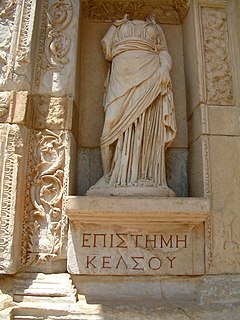 W
WDiscourse analysis (DA), or discourse studies, is an approach to the analysis of written, vocal, or sign language use, or any significant semiotic event.
 W
WConversation analysis (CA) is an approach to the study of social interaction, embracing both verbal and non-verbal conduct, in situations of everyday life. CA originated as a sociological method, but has since spread to other fields. CA began with a focus on casual conversation, but its methods were subsequently adapted to embrace more task- and institution-centered interactions, such as those occurring in doctors' offices, courts, law enforcement, helplines, educational settings, and the mass media. As a consequence, the term 'conversation analysis' has become something of a misnomer, but it has continued as a term for a distinctive and successful approach to the analysis of sociolinguistic interactions.
 W
WDiscourse is a generalization of the notion of a conversation to any form of communication. Discourse is a major topic in social theory, with work spanning fields such as sociology, anthropology, continental philosophy, and discourse analysis. Following pioneering work by Michel Foucault, these fields view discourse as a system of thought, knowledge, or communication which constructs our experience of the world. Since control of discourse amounts to control of how the world is perceived, social theory often studies discourse as a window into power. Within theoretical linguistics, discourse is understood more narrowly as linguistic information exchange and was one of the major motivations for the framework of dynamic semantics, in which expressions' denotations are equated with their ability to update a discourse context.
 W
WDiscourse & Society is a bimonthly peer-reviewed academic journal that covers the field of discourse analysis. It was established in 1990 by Teun A. van Dijk, who has been the editor-in-chief ever since.
 W
WEpisteme is a philosophical term that refers to a principled system of understanding; scientific knowledge. The term comes from the Ancient-Greek verb epístamai (ἐπῐ́στᾰμαι), meaning 'to know, to understand, to be acquainted with'. The term epistemology is derived from episteme.
 W
WSnježana Kordić ; born 29 October 1964) is a Croatian linguist. In addition to her work in syntax, she has written on sociolinguistics. Kordić is known among non-specialists for numerous articles against the puristic and prescriptive language policy in Croatia. Her 2010 book on language and nationalism popularises the theory of pluricentric languages in the Balkans.
 W
WErnesto Laclau was an Argentine political theorist and philosopher. He is often described as an 'inventor' of post-Marxist political theory. He is well known for his collaborations with his long-term partner, Chantal Mouffe.
 W
WChantal Mouffe is a Belgian political theorist, formerly teaching at University of Westminster.
 W
WRhetorical structure theory (RST) is a theory of text organization that describes relations that hold between parts of text. It was originally developed by William Mann and Sandra Thompson of the University of Southern California's Information Sciences Institute (ISI) and defined in a 1988 paper. The theory was developed as part of studies of computer-based text generation. Natural language researchers later began using RST in text summarization and other applications. It explains coherence by postulating a hierarchical, connected structure of texts. In 2000, Daniel Marcu, also of ISI, demonstrated that practical discourse parsing and text summarization also could be achieved using RST.
 W
WIn spoken language analysis, an utterance is the smallest unit of speech. It is a continuous piece of speech beginning and ending with a clear pause. In the case of oral languages, it is generally, but not always, bounded by silence. Utterances do not exist in written language, however- only their representations do. They can be represented and delineated in written language in many ways.